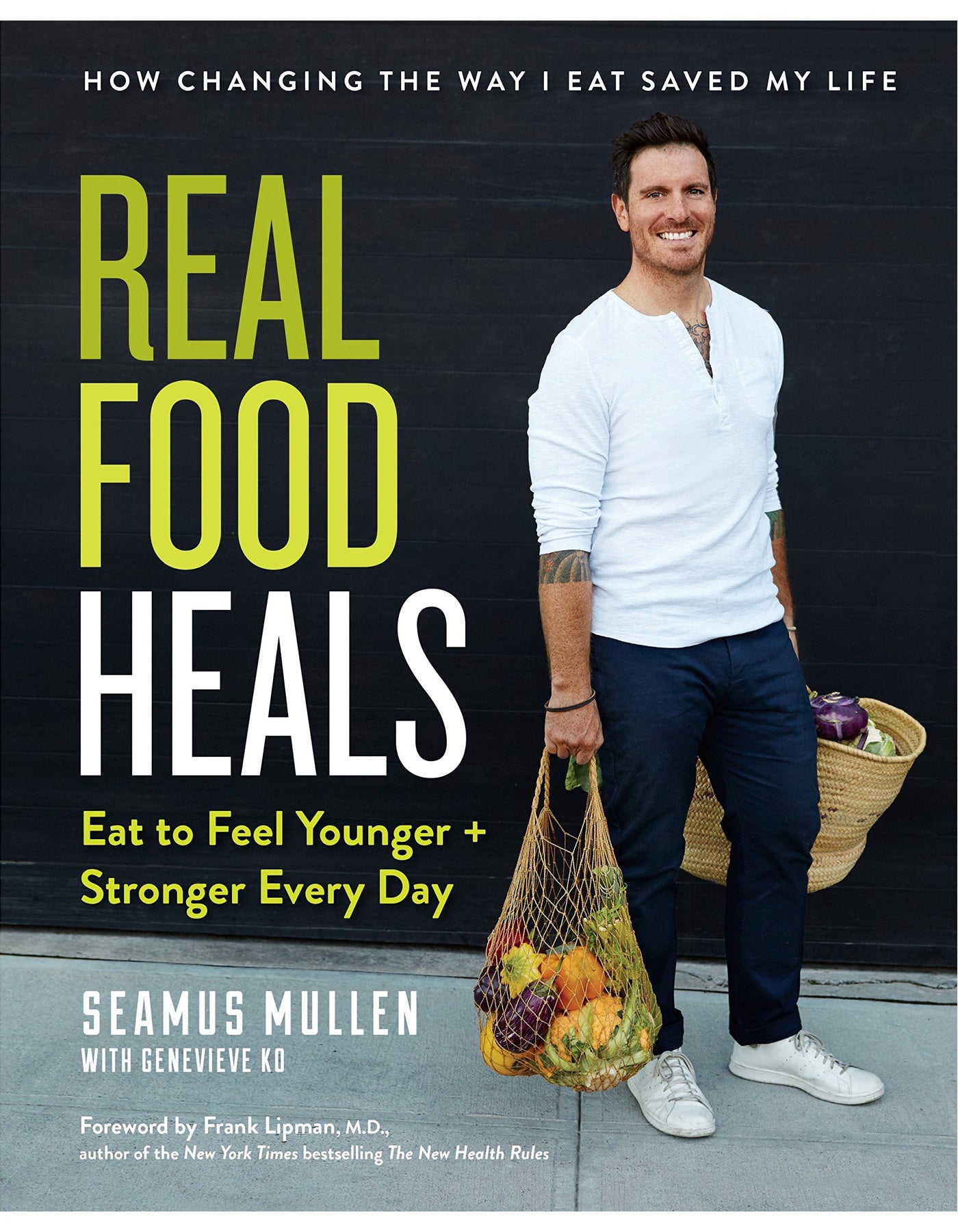Diary / Justbobbi / Sep 26, 2022
Chef Seamus Mullen on Diets, Healthy Food & Supplements
Written by: Bobbi

Seamus Mullen is an award-winning chef, cookbook author and a leading authority on health and wellness. In 2007, he was diagnosed with rheumatoid arthritis, an autoimmune disease that almost killed him and forced him to rethink his relationship with food. His latest book, Real Food Heals, is an exploration of how food can change the way you feel and is packed with healthy, delicious recipes. We sat down to talk about the restaurant industry, how he changed his life with food and what he thinks about diets and supplements. Listen to the full episode of Long Story Short here.
On his big break...
My big break was in 2006 when I opened my first restaurant. When I was the chef de cuisine in midtown [Manhattan], I started thinking abou what was missing in the New York dining scene. Spanish food was starting to get hot. I had just gotten back from working in Spain for a couple of years and I thought it would be a great opportunity to bring casual, tapas style dining to New York. The first location was a runaway success. It cost us maybe $450,000 to open and we did $4 million in sales that year. We got an incredible review from the New York Times. The New York Times review is what makes or breaks you. We got a glowing review from Frank Bruni in the New York Times and he went on review me a few other times and every time I got great reviews and that just kind of solidified my career.
On the challenge of healthy restaurants...
One of the challenges is there are so many places in the professional kitchen where crap ingredients sneak in. Whether its canola oil or vegetable oil or sugars. It’s easy to throw a bunch of fat, sugar and salt at something and make it taste really good. What’s challenging is to take really pristine, beautiful vegetables, celebrate them, but still make them really appealing and cravable. That is one of the obstacles in creating a healthy restaurant.
On diets and wellness…
The best advice I can give to someone for food and diet is try to get to a point where you understand a healthy baseline, what it means to feel good. And then add foods in and if you notice that you don’t feel great when you eat certain things, don’t eat them.
[Dr. Frank Lipman] helped me recalibrate how I thought about health and understand that the myriad of decisions you make throughout the course of your day, week and life all add up to a picture of wellness and real health. I like to think of it as being a sum of all those decisions. Every choice we make is going to impact the bigger picture.

On why he wrote his book, Real Food Heals...
Historically when we think about health food, there has been a really negative stigma attached to the idea. You lead with health and then food. The first thing you are going to think is it's going to taste like crap and be boring and dry. I knew I could make really healthy food, nutrient dense food, taste really good because that's what I do. As I started cooking for myself more and more I realized there is so much here to share.
I really want to help empower people to make positive changes in their lives through the decisions that they make. And they have to be full of joy. We have two basic needs in life: we have to reproduce and we have to eat. There should be pleasure attached to both of those activities. When you strip the joy out of it, it becomes a chore. It becomes something we have an obligation to. I don’t think the word obligation should be associated with food.
On supplements...
I think of supplementation just as what the world is. It’s a supplement to a positive, healthy relationship with food. It doesn’t take the place of. I think that is the one of the problem oftentimes with, I call this transactional medicine. I have a problem, I go to the doctor, the doctor presents me with a pill. That takes the responsibility of of the patient.
On how to take the first step towards healthy eating...
I think the single most important thing for me was eating with regularity and portion control. When you’re eating, be present. Put down your phone, don’t read something. Take a minute to actually be present with your thoughts or in conversation with someone else. Being in conversation forces you to slow yourself down. It’s okay to be hungry. Being hungry is a really good thing. Our ancestors spent the majority of their life hungry and they were fine.













































 Miracle Balm
Miracle Balm
 Just Enough Tinted Moisturizer
Just Enough Tinted Moisturizer
 What The Foundation
What The Foundation


